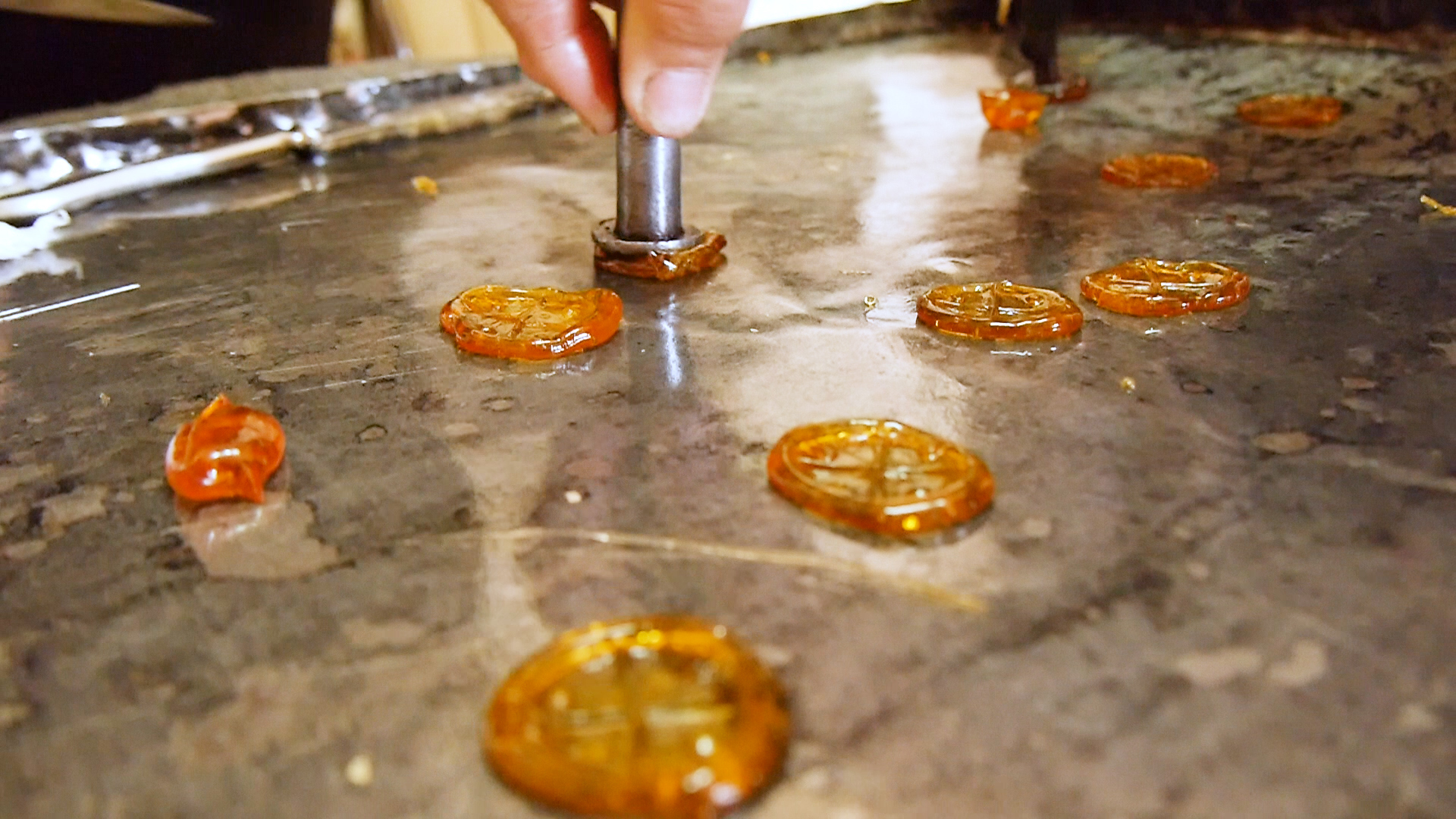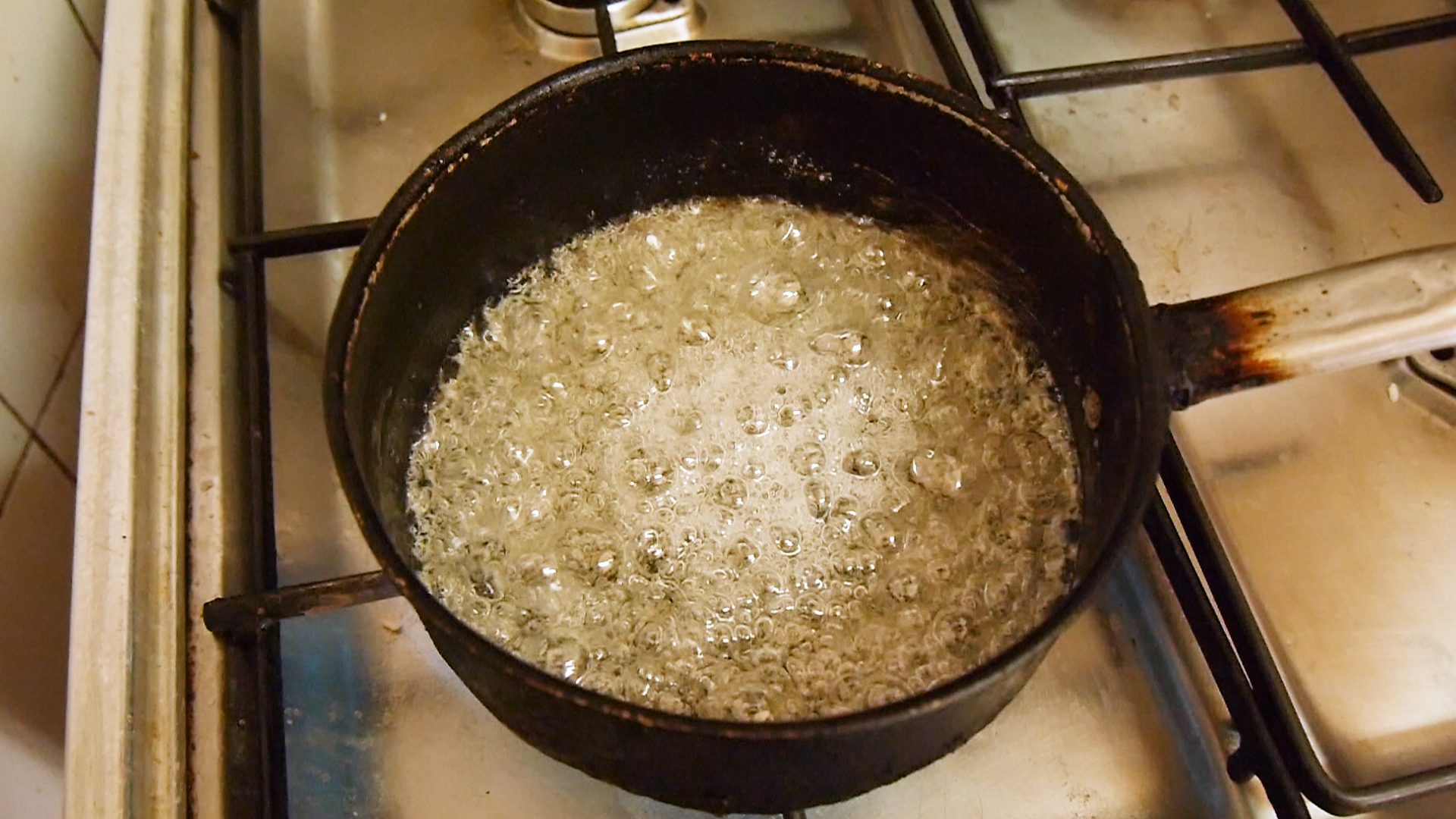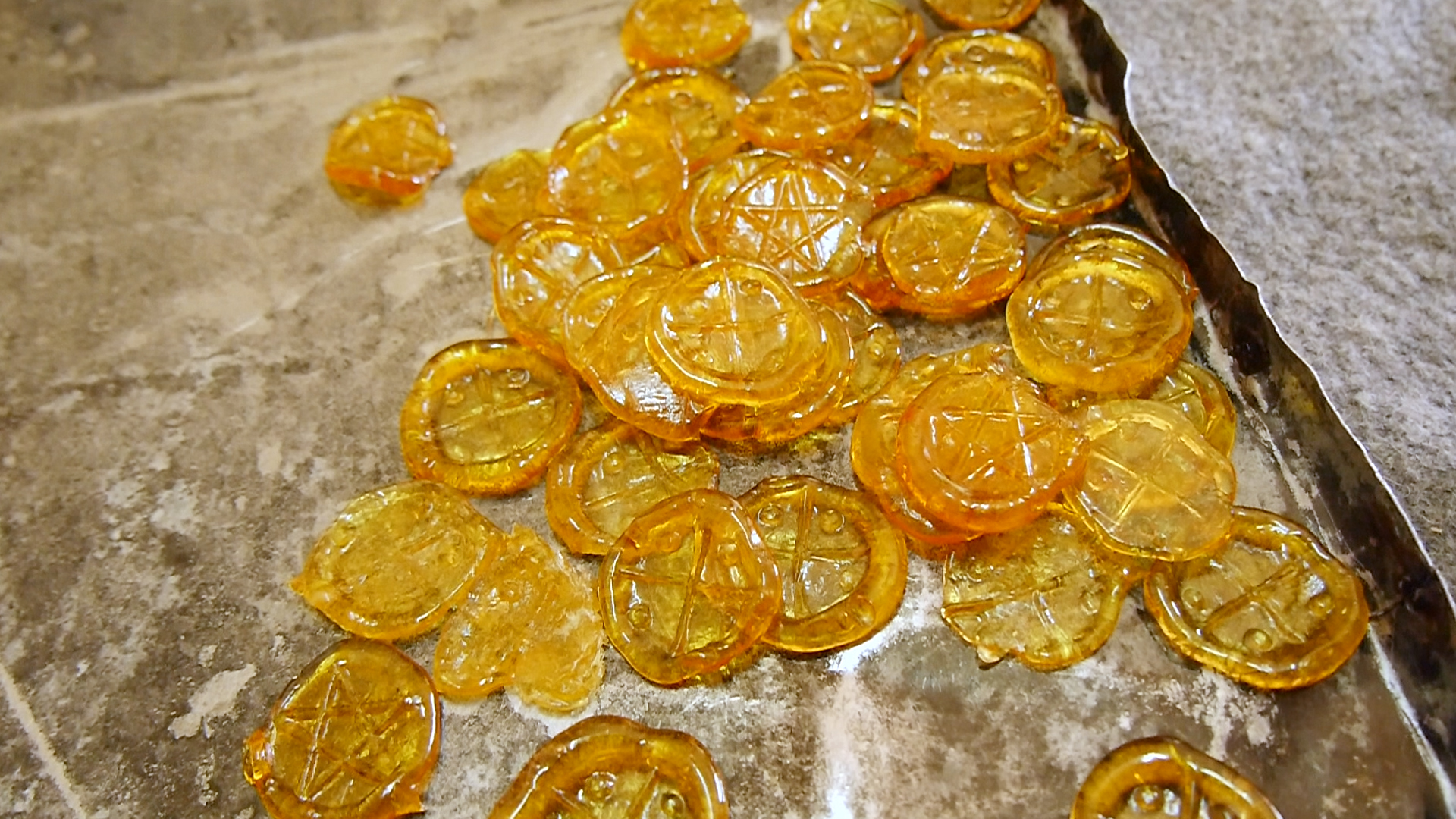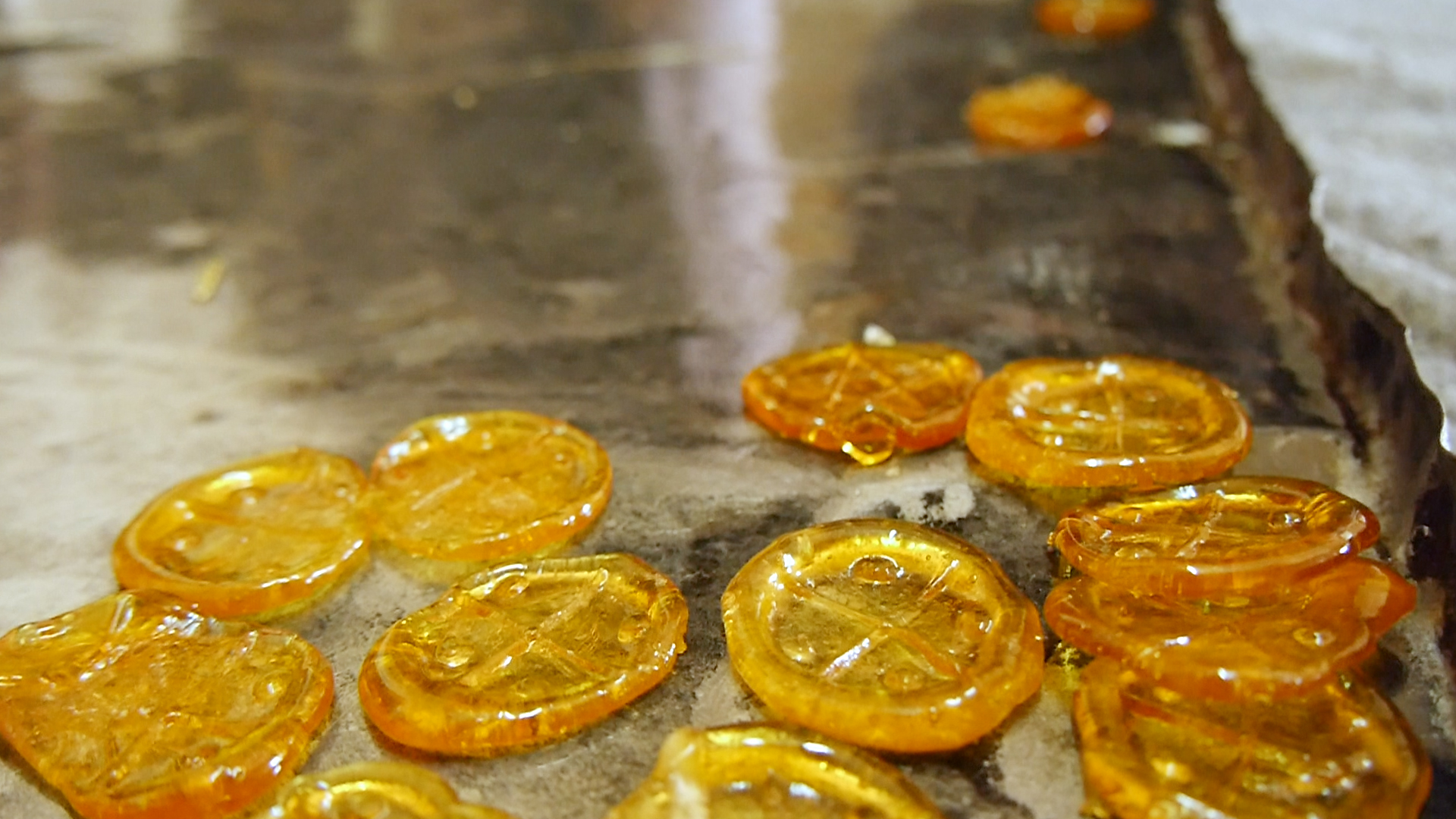Na aldeia de Bouça-Cova, concelho de Pinhel, existem uns rebuçados típicos feitos à base de água e açúcar, que têm a particularidade de serem prensados com símbolos. Interessante acima de tudo é que a última doceira que ainda faz estes rebuçados de caramelo, a senhora Dolorosa dos Santos, utiliza moldes com símbolos judaicos, que já vêm da sua avó Alexandrina, uma doceira que viveu até aos 102 anos. Dolorosa apenas sabe que assim se fazia e assim aprendeu, mas há decerto neste doce uma história guardada, que deixa entrever um passado sefardita nesta povoação.
Tirando esse importante detalhe, há um paralelo claro entre a história destes rebuçados e a dos conhecidos rebuçados da Régua, por exemplo. É a história de um doce muito simples, barato, feito por mulheres e vendido na rua. Ainda hoje, a senhora Dolorosa frequenta feiras locais onde vende os tradicionais rebuçados de Bouça-Cova.
***
In the village of Bouça-Cova, situated in the municipality of Pinhel, there is this typical candy made of water and sugar that has the particularity of being stamped with symbols. Most interestingly, the last confectioner that still makes this sugar candy, Dolorosa dos Santos, uses molds with Jewish symbols, which were passed down to her from her grandmother Alexandrina, a confectioner that lived to be 102 years old. Dolorosa knows only that candy was made this way, as she learned to make it, but there is certainly a well-kept story behind it; a story, we imagine, about a Sephardic past in this area.
Besides that important detail, the story of this candy is identical to the well-known Régua candy, for instance. It is the story of a very simple and inexpensive candy, made by women and sold on the street. Still today, Dolorosa shows up in local markets where she sells the traditional candy of Bouça-Cova.
PUBLICIDADE





